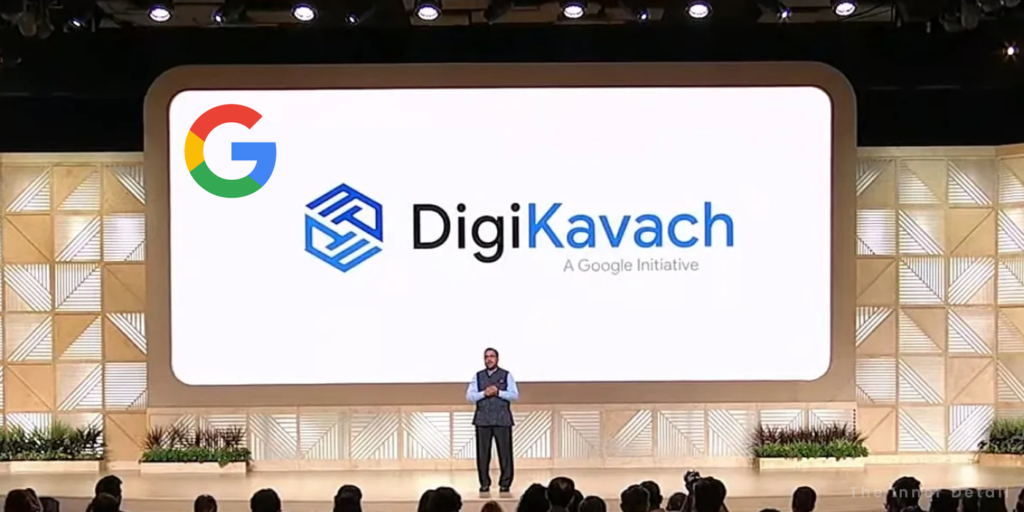Google India partners with FACE and launches DigiKavach, which helps people in identifying potential financial frauds online & provides warning on the same.
Adapting to the digital infrastructure on large-scale, though facilitated an easy and simpler way to perform tasks, it has also created cybersecurity, privacy and financial concerns and risks. 77% of scams are now happening on online marketplaces, social media and dating apps, Barclays reported. Impersonation scams on WhatsApp had tripled in a year, while fake listings on Facebook Marketplace had doubled.
To combat these scams and assist people to stay safe from these online fraudulent activities, Google launched this “DigiKavach”, which provides an alert or warning signal, if it finds any financial fraud patterns.
What is DigiKavach?
DigiKavach is an early threat detection and warning system designed to identify and study emerging fraud patterns before they cause widespread harm. This means collectively developing and implementing safeguards or digital shield, to protect people from scams, malware and online fraud. It ensures that people can safely use the internet in all aspects of their lives. Google has collaborated with the Fintech Association for Consumer Empowerment (FACE) for developing this DigiKavach.
With this merge, FACE has been onboarded as a priority flagger to discern the predatory loan apps on Play Store in India. Face will support Google with market intelligence to inform detection and enable swift action against personal loan apps in India non-compliant with Play Store’s policies, Google said.
The objective of DigiKavach can be put under three stages – 1) Study the Modus Operandi of Scammers, 2) draw insights and detect threats, 3) collaborating with wider ecosystem.
The model first tries to understand the tactics and strategies deployed by fraudsters and the team behind DigiKavach strive to unwind the intricate web of deception used by them. Google also unites with Cyber Crime Helpline (1930) of India, for this cybersecurity initiative. Cyber Crime Helpline will be providing timely information and support to individuals affected by financial fraud.
How Google helps in preventing online-scams?
As being the major frontier in the digital world, via smartphones, people are relied to Google in one way or another. May it be android, Gmail, and Google Pay, people, especially Indians are directly involving with Google platforms every day.
Across its various platforms, Google implements its security system, for catering a safe online environment. With Google Play Protect, a built-in defense mechanism, android apps are scanned for any suspicious malware, thus ensuring a risk-free download of apps.
When it comes to Gmail, it automatically blocks more than 99.9% of spam, phishing and malware, securing over 1.5 billion inboxes worldwide. This sees to that individuals are less likely to fall as victims to phishing emails.
Google Pay
In Google Pay, the firm equips AI models to detect suspicious payments, by which it has prevented scams worth ₹12,000 crore on the app in the last one year.
“GPay has also declined 1 lakh transactions everyday after AI models detected that it could be suspicious,” Saikat Mitra, Vice President and head of trust and safety, Google APAC, told reporters on the sidelines of the event.
He said that GPay showed 2.5 lakh alert to users in their preferred language saying that the transaction may be suspicious and as a result, 40% of people cancelled that transaction.
Further, though firms provide various features and services to not fall into the trap of online-scams, it’s mostly in individuals’ hands. Avoid believing any online interaction, when it comes to money, unless and until it’s an established brand. Ensure the receiver is trustable and reachable in offline, if you choose to believe so. Also, be aware that no bank officials will call for any updates and clarifications on your account on phone.
(For more such interesting informational, technology and innovation stuffs, keep reading The Inner Detail).
Kindly add ‘The Inner Detail’ to your Google News Feed by following us!

